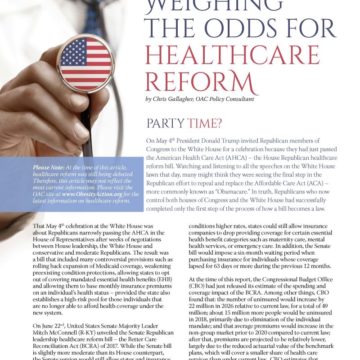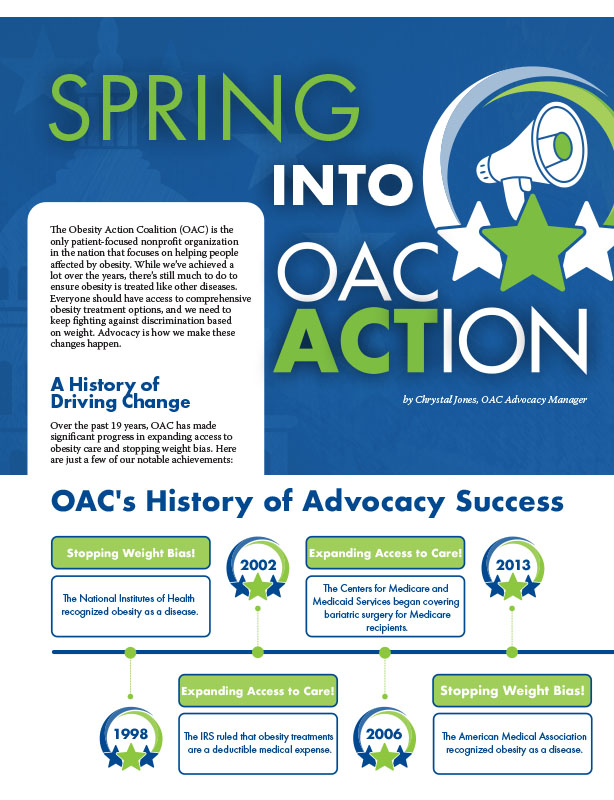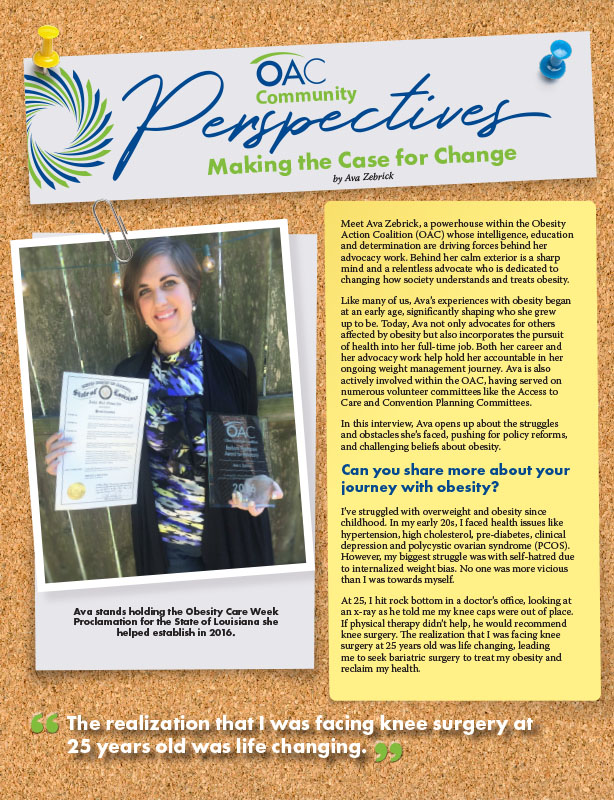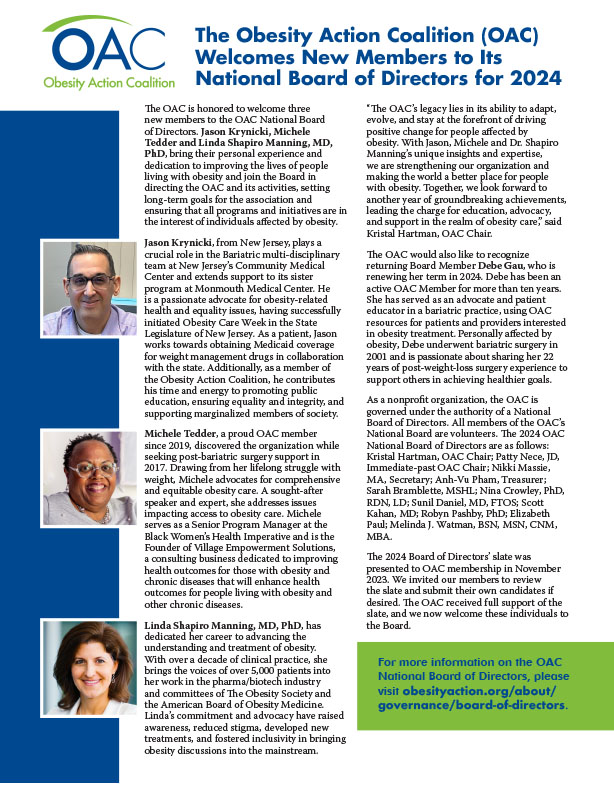Combating Weight Bias: Why We Need to Take Action

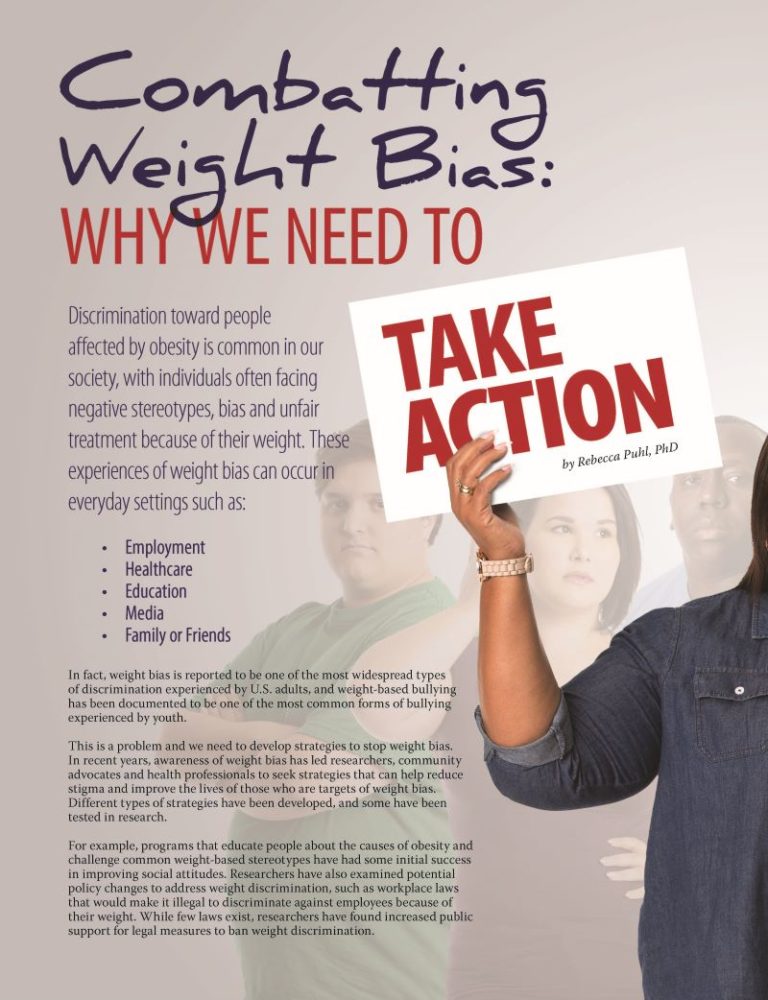
by Rebecca Puhl, PhD
Summer 2017
Discrimination toward people affected by obesity is common in our society, with individuals often facing negative stereotypes, bias and unfair treatment because of their weight. These experiences of weight bias can occur in everyday settings such as:
-
- Employment
- Healthcare
- Education
- Media
- Family or Friends
In fact, weight bias is reported to be one of the most widespread types of discrimination experienced by U.S. adults, and weight-based bullying has been documented to be one of the most common forms of bullying experienced by youth.
This is a problem and we need to develop strategies to stop weight bias. In recent years, awareness of weight bias has led researchers, community advocates and health professionals to seek strategies that can help reduce stigma and improve the lives of those who are targets of weight bias. Different types of strategies have been developed, and some have been tested in research.
For example, programs that educate people about the causes of obesity and challenge common weight-based stereotypes have had some initial success in improving social attitudes. Researchers have also examined potential policy changes to address weight discrimination, such as workplace laws that would make it illegal to discriminate against employees because of their weight. While few laws exist, researchers have found increased public support for legal measures to ban weight discrimination.
There is work that remains to discover what types of bias-reduction strategies will be useful and effective. Critical to these efforts are the voices of people affected by obesity, as their view is valuable in identifying what kinds of bias-reduction remedies are needed and what settings may be the targets for these changes. Unfortunately, the voices of people affected by obesity are frequently absent in these efforts. This needs to change! Efforts to combat weight bias must seek the views, opinions and knowledge of people who have experienced this stigma.
To begin to address this problem, my research team at the Rudd Center for Food Policy and Obesity teamed up with the the Obesity Action Coalition (OAC) to conduct a recent study. Our objective was to survey OAC members who had experienced weight bias and to learn about a broad range of potential bias-reduction strategies. We wanted to know what types of strategies they viewed to be important, as well as their view on ways to reduce weight bias across different settings, such as education, healthcare, employment, and more.
Our study included 461 OAC members who responded to our survey. All of these people were affected by excess weight or obesity, and almost all (91 percent) reported that they had experienced weight bias in the form of teasing, unfair treatment or discrimination. We provided participants with a list of 35 different strategies to reduce weight bias and asked them for their perspectives on the importance and potential impact of each strategy.
The findings of the study were striking. The majority of participants (76-95 percent) listed high importance to 31 of 35 bias-reduction strategies, with school-based and healthcare approaches receiving the highest ratings.1 Providing education about weight bias in existing anti-harassment training in the workplace was rated as the most impactful and possible strategy. Other specific key findings are highlighted below:
Key Study Findings
-
- 95 percent assigned high importance to the implementation of anti-bullying policies to protect students from weight-based bullying.
- 94 percent placed high importance on implementing comprehensive education about obesity in medical schools, and training for healthcare providers to give respectful, compassionate care to patients affected with obesity.
- 94 percent assigned high importance to providing parents with access to resources for support.
- 91 percent identified weight-loss programs as an important opportunity to provide services that help people cope with weight bias in their lives.
- More than 85 percent assigned high importance to legislative remedies, including strengthening state anti-bullying laws to include protections for youth against weight-based bullying and adopting laws to make it illegal for employers to discriminate against employees because of their weight.
Also noteworthy is that 86 percent of OAC members identified family members as playing a major role in efforts to reduce weight bias. Family relationships have received less attention from researchers in the context of weight bias, but these findings suggest that we need to prioritize efforts that involve family.
What Can We Learn from This Study?
The high importance that OAC members gave to many bias-reduction strategies across different settings highlights the need for comprehensive approaches to effectively reduce weight bias. Put simply, those who have experienced weight bias see a need for different strategies to address bias in many life areas, ranging from the family/home to broader state-level policies. Given how common weight bias is in our society, these views are certainly justified. No single approach will be enough to address society’s weight bias – we need to target multiple settings. The views of OAC members in this study further point to several specific bias-reduction strategies that were viewed to have high potential impact. These included:
-
- Addressing weight bias in workplace harassment training
- Increasing public education about the complex causes of obesity
- Implementing anti-bullying policies in schools to protect students from weight-based bullying
- Providing training for healthcare providers on respectful and compassionate care to patients affected by obesity
These strategies offer specific opportunities that can be prioritized for advocates, researchers, educators, employers and health professionals in efforts to reduce weight bias.
What Can You Do to Address Weight Bias?
Combating weight bias requires a collective effort from all of us. There are many ways to get involved, ranging from individual actions in your daily life to advocacy efforts such as contacting politicians. Below and on the following page are some examples of how you can be a part of these efforts.
Use respectful language when talking about people affected by obesity. Be mindful and sensitive about the words to refer to someone’s weight. Modeling respectful language is a way to show others how to do the same.
Speak up if you witness someone engaging in weight-based teasing. “Fat jokes” are not funny – they are harmful and reinforce society’s stigma.
If you are the target of weight bias from family or friends, let them know that their actions are hurtful and unfair.
Educate others in your life about weight bias and its consequences. Helping people understand that obesity is a disease with complex causes can help stop harmful weight-based stereotypes.
If you have school-age children, find out what kind of anti-bullying policy is in place at their school. Does it protect students from weight-based bullying? If not, you can raise this issue with school administrators.
Does your workplace have an anti-harassment policy in place? Is there an opportunity to improve this policy to ensure that employees affected by obesity are not vulnerable to bias or mistreatment because of their size?
When interacting with your doctor or healthcare provider, inform him/her of any experiences of weight bias that you’ve faced in the healthcare setting. This can include the way that providers have talked to you about your weight.
When you see examples of weight bias in the media (e.g., in television shows or on social media), speak out! Contact the OAC with any examples of public weight bias that you see, and the Weight Bias Task Force can tackle them head on.
Some states in the U.S. are considering enacting laws that would prohibit discrimination. Sending a letter or email to your local or state legislator is a great way to encourage them to support policy-level solutions to reduce weight bias.
Specific findings and details of the study can be found in the following published research article:
Puhl, R.M., Himmelstein, M.S., Gorin, A.A., Suh, Y.J. (2017). Missing the target: Including perspectives of women with overweight and obesity to inform stigma-reduction strategies. Obesity Science & Practice. DOI: 10.1002/osp4.101
About the Author:
Dr. Puhl is a Professor of Human Development and Family Studies at the University of Connecticut and the Deputy Director of the Rudd Center for Food Policy and Obesity. She has conducted research on weight stigma for over 15 years and leads research and policy efforts aimed at reducing weight-based stigma and victimization and improving the quality of life of children and adults affected by obesity. More information about Dr. Puhl’s work is available at www.uconnruddcenter.org.
by Chrystal Jones, OAC Advocacy Manager Spring 2024 The Obesity Action Coalition (OAC) is the only patient-focused…
Read Articleby Ava Zebrick Spring 2024 Meet Ava Zebrick, a powerhouse within the Obesity Action Coalition (OAC) whose…
Read ArticleThe OAC is honored to welcome three new members to the OAC National Board of Directors. Jason Krynicki,…
Read Article




